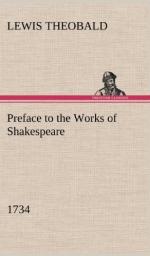[Sidenote: Platonius corrected.]
I. In that golden Fragment, which we have left of Platonius, upon the three Kinds of Greek Comedy, after he has told us, that when the State of Athens was alter’d from a Democracy to an Oligarchy, and that the Poets grew cautious whom they libell’d in their Comedies; when the People had no longer any Desire to choose the accustom’d Officers for furnishing Choric Singers, and defraying the Expence of them, Aristophanes brought on a Play in which there was no Chorus. For, subjoins He, +ton gar CHOREUTON me cheirotonoumenon, kai ton CHOREGON ouk echonton tas trophas, hypexerethe tes Komodias ta chorika mele, kai ton hypotheseon ho tropos meteblethe+. "The Chorus-Singers_ being no longer chosen by Suffrage, and the Furnishers of the_ Chorus no longer having their Maintenance, the Choric_ Songs were taken out of Comedies, and the Nature of the Argument and Fable chang’d._” But there happen to be two signal Mistakes in this short Sentence. For the Chorus-Singers were never elected by Suffrage at all, but hir’d by the proper Officer who was at the Expence of the Chorus: and the Furnishers of the Chorus had never either Table, or Stipend, allowed them, towards their Charge. To what Purpose then is this Sentence, which should be a Deduction from the Premises, and yet is none, brought in? Or how comes the Reasoning to be founded upon what was not the Fact? The Mistake manifestly arises from a careless Transposition made in the Text: Let the two Greek Words, which I have distinguished by Capitals, only change Places, and we recover what Platonius meant to infer: “That the [A]_Furnishers_ of Chorus’s being no longer elected by Suffrage, and the [B]_Chorus-Singers_ having no Provision made for them, Chorus’s were abolished, and the Subjects of Comedies alter’d.”




